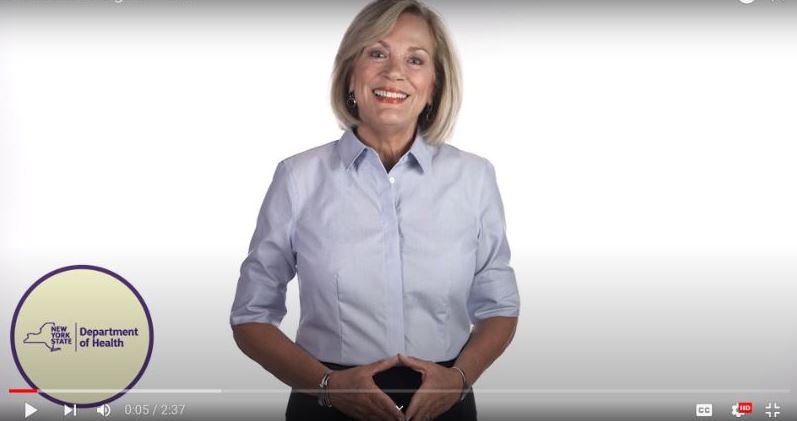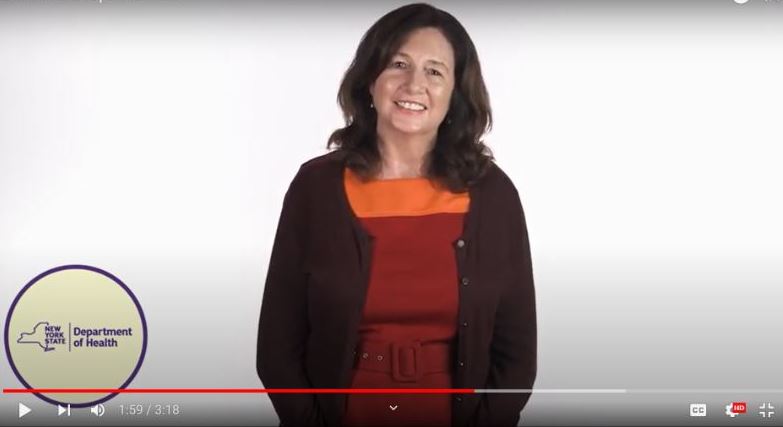Community Outreach & Other Resources
This page includes forms you´ll need for the application process and information related to community-based long-term care in New York State.
If at any time you have questions, concerns, or complaints regarding the Nursing Home Transition and Diversion program, please call (518) 474-5271 or email nhtd@health.ny.gov.
Click on a video below to learn more about this program:
NHTD Waiver Program Forms and Documents
Resources for Services and Supports
NY Connects
NY Connects is a locally based No Wrong Door (NWD) system that provides one stop access to free, objective, comprehensive information and assistance on long term services and supports for people of all ages or with any type of disability. The NY Connects NWD System is administered through a collaboration between the Area Agencies on Aging, Local Departments of Social Services, and six regionally contracted Independent Living Centers.
Front Door Program (OPWDD eligible only)
The Front Door is the way the NYS Office for People with Developmental Disabilities connects New Yorkers to the services they want and need. The program includes a person-centered planning process, which helps participants learn about and access service options that take their needs and desires into consideration. The Front Door is based on the understanding that people with developmental disabilities have the right to enjoy meaningful relationships, experience personal growth, participate in their community, and live in the home of their choice.
Open Doors Program
The Open Doors Program is focused on assisting people living in nursing homes and intermediate care facilities to receive individualized home and community-based services. This includes providing people with free, objective information about services and supports that are available in their local community. Open Doors can be reached at (844) 545-7108, or via email at secq@ilny.org.
Regional Resource Development Centers (RRDCs)
RRDCs manage the application, participation, and renewal process of the NHTD program.
The New York Association on Independent Living (NYAIL)
The New York Association on Independent Living (NYAIL) is a not for-profit, non-government membership organization that promotes the independent living and rights of New Yorkers with disabilities. They can be reached at (518) 465-4650, or via email info@ilny.org. Visit their website here.
The Technology-Related Assistance for Individuals with Disabilities (TRAID) Program
The Technology-Related Assistance for Individuals with Disabilities (TRAID) Program provides access to assistive technology to any New Yorker with a disability through Regional TRAID Centers. Regional TRAID Centers provide device loans and hands-on training to people with disabilities. To access equipment, visit their website to locate a Regional TRAID Center near you. For general questions, contact the TRAID Program at (518) 549-0200 or via email at jc.sm.TRAID@Justicecenter.ny.gov.
Resources for Housing
The NYS Office for the Aging website includes tools to search for housing throughout New York State.
The following rental subsidies and housing services are often used by participants in the NHTD program. More supportive housing programs are available on the New York State Department of Health website.
Olmstead Housing Subsidy
The Olmstead Housing Subsidy is a statewide program that provides rental subsidies and community transitional services for seniors and adults with chronic disabilities who are homeless, have spent at least one hundred and twenty (120) consecutive days in a skilled nursing facility over the most recent two-year period, and can live safely in the community.
Rapid Transition Housing Program
The Rapid Transition Housing Program (previously known as Nursing Home to Independent Living) provides a rental subsidy and supportive housing services for high-need Medicaid beneficiaries. The program is available in four areas of the state: Long Island, Syracuse, New York City and Rochester. Eligible participants of the program are those individuals who are either currently enrolled in the program or are individuals with one or more documented chronic physical disabilities and have two or more chronic conditions (e.g., asthma, diabetes, substance abuse disorder). Participants in the program must be on Medicaid and referred as homeless high-utilizers by a health system including: hospital, Managed Care Organization, medical respite, Performing Provider System, or skilled nursing facility.
Traumatic Brain Injury and Nursing Home Transition and
Diversion Housing Programs
The Traumatic Brain Injury (TBI) and Nursing Home Transition and Diversion (NHTD) Housing Programs are rental subsidy programs of last resort for Medicaid recipients participating in the TBI or NHTD 1915(c) Home and Community-Based Services waiver programs, respectively. Only Medicaid recipients enrolled and actively participating in the TBI or NHTD programs are eligible to apply for the TBI/NHTD Housing Program. Subsidies for the housing program are contingent upon available funding and are renewed on an annual basis. The Program offers qualified applicants a monthly rental subsidy and assistance with utilities and certain one-time costs.
- Program Guidelines (PDF)
- More files and forms for these housing programs are available here
New York State´s Work to Provide Community-Based Long-Term Care
- Bagley v. NYS Department of Health Notice of Proposed Settlement (PDF)
- Also available in the following languages: Spanish, Chinese, Haitian Creole, Italian, Korean, Russian, Yiddish, Polish, French, Bengali, Arabic, Urdu, Burmese, Hindi, Nepali, Japanese
Olmstead Implementation Plan
In its 1999 Olmstead v. L.C. decision, the U.S. Supreme Court ruled that states, in accordance with the Americans With Disabilities Act (ADA), have an obligation to provide services to individuals with disabilities in the most integrated setting appropriate to their needs. New York State has developed a comprehensive Olmstead Implementation Plan that will address integrated housing, employment, transportation, community services and other important issues.

